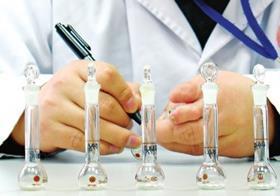
Indonesian maximum residue level (MRL) import requirements brought into play late last year have not caused any shipments to be rejected so far, Fruitnet.com has learned, but a new way to pay for testing must be established.
Regulation 27, titled ‘Food Safety Surveillance for Entry and Exit of Fresh Food of Plant Origin’, was brought into force in November last year after initially being scheduled for August.
The regulation requires all fruit, vegetables and grain imported to the country to have a certificate of analysis covering residues for pesticides, heavy metals and mycotoxins.
No shipments so far have been in violation of the regulation or been otherwise rejected, industry sources tell Fruitnet.com.
Pallets are currently being warehoused from both air and sea shipments until residue test results from samples are cleared by Indonesian customs authorities.
Importers are so far passing the cost of that analysis onto customers, but they say that practice is not sustainable and a new way to fund the procedure must be established.
US cherries have been entering the market subject to random sampling, according to industry sources, while limited volumes of Australian grapes are arriving in Indonesia with the export season only just getting underway and a combination of high prices and heat-affected quality this season.
Australian table grape growers have expressed concern over the new requirements, especially as Indonesia traditionally takes smaller-sized grapes, which Australia has in abundance this season.
“Indonesian officials visited Australia in the second week of December to look at the way we handle MRLs,” David Minnis of 888 Exports in Victoria told Fruitnet.com.
“We’re hoping they give us approved country status so we don’t have to do shipment-by-shipment testing. So far I think they’ve only given that status to Thailand and the US.”
Sales in the Indonesian fresh produce market are reportedly quite slow at the moment while the wet season keeps consumers indoor.






No comments yet